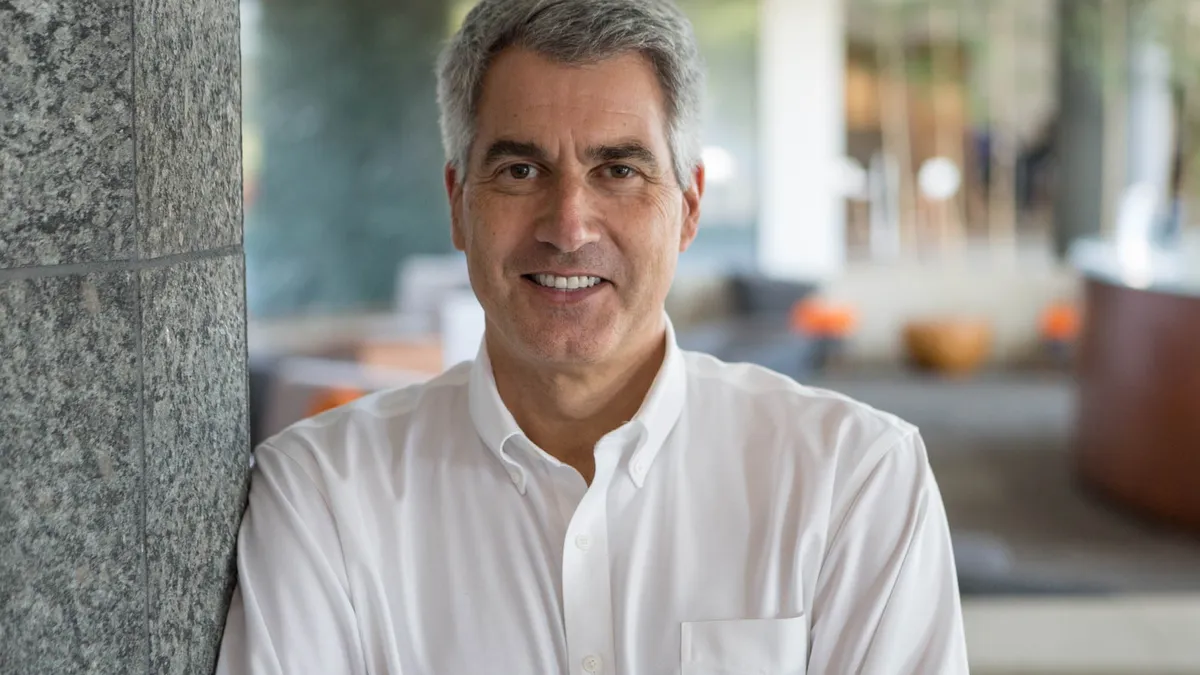Dive Brief:
- Discover Financial Services' first-quarter card sales volume rose 23% year-over-year, company executives said Thursday during a call to discuss quarterly earnings. That figure was “higher than we anticipated," said Discover Chief Financial Officer John Greene. “We’re frankly happy to see that.”
- Given broader economic factors and the Federal Reserve’s efforts to tame inflation, however, Greene acknowledged the company has factored in a “modest stepping down” in card spend through 2022. “Effectively, it’s hard to envision year-over-year sales growth to continue in the upper 20s,” Greene said.
- Riverwoods, Illinois-based Discover reported net income of $1.2 billion for the first quarter, down 22% from $1.6 billion a year earlier. Revenue net of interest expense was $2.9 billion for the quarter, up 4%.
Dive Insight:
Discover CEO Roger Hochschild acknowledged recession concerns but said “there is nothing we’re seeing in terms of consumer spending or borrowing behavior that suggests that a broader downturn is imminent.”
Discover narrowed its expectations for credit losses, projecting those will be between 2.2% and 2.4% for the year. Although "there's still some uncertainty about the back half of this year," Greene said the company is confident in that estimation based on current credit performance and delinquency trends.
When it comes to inflation, Discover’s business model “has somewhat of a natural hedge,” with the inflationary pressure on costs partially offset by its lift to sales volume, Hochschild said.
Higher spending due to inflation stands to benefit near-term loan growth in the credit card business, but if consumers have trouble paying off balances, revolving debt and delinquencies could rise.
Amid energy price inflation, Discover executives believe higher gas prices “were a relatively small contributor to sales volume” in the first quarter, Hochschild said.
Overall, inflation drove a modest portion of the quarter’s growth, “and we expect that inflation will remain a benefit to sales growth over the short term,” Greene said.
Discover is seeing inflation’s influence on the expense side, too, related to salaries and wages. Compensation expense in the quarter was down slightly year-over-year on lower bonus accruals and headcount, which was partially offset by higher average salaries, Greene said.
“We expect some degree of salary and wage pressure in 2022 and possibly into 2023, as we take steps to remain competitive,” Greene said.
Recently, Discover has dealt with higher attrition than in the past and is working to counter that, according to Andy Eichfeld, the company’s chief human resources and administrative officer. As of the end of 2021, the company had 16,700 employees, down from 17,600 at the end of 2020, per the company’s annual 10-K filings with the Securities and Exchange Commission.
Greene said Thursday the company will continue to invest as it sees opportunities, but will “be really disciplined in terms of how we spend our dollars.” “Discover’s got a long history of that,” he added.
First-quarter expenses increased 5% to $1.1 billion, largely due to higher marketing and information processing. Marketing and business development expenses jumped 25%. That follows big marketing spending in the fourth quarter of 2021, too, as the company pushed for new accounts. Hochschild said new accounts in the first quarter grew 11% YoY.
Later this year, broad market advertising is planned for the company’s revamped cashback debit product which launched this month. “We intend to scale it gradually and build for the long term," Hochshild said. "Over time, we expect it to be a key part of our business,” he said of the debit product.











